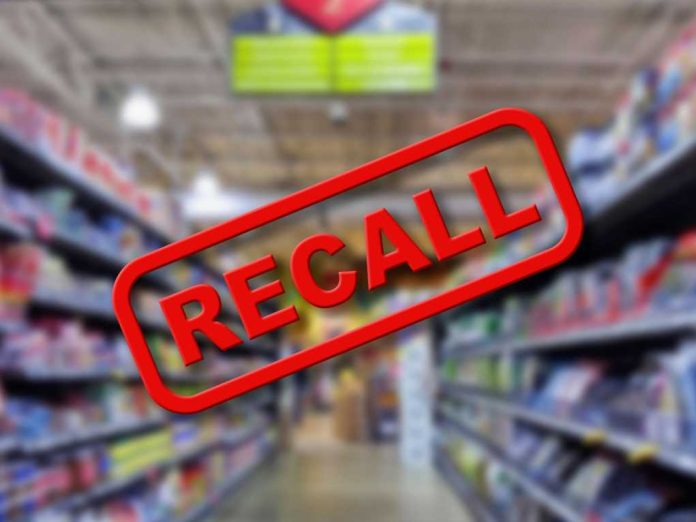
Three innocent-looking jars of tomato sauce triggered a nationwide scramble when regulators discovered they could unleash one of the deadliest toxins known to man—making every pantry a potential crime scene.
Story Snapshot
- FDA recalls three tomato sauces over botulism risk, urging consumers to check their pantries immediately.
- The manufacturing lapse exposes cracks in food safety oversight, especially for smaller producers.
- No reported illnesses yet, but the threat of potentially fatal poisoning looms large.
- Industry experts warn this recall could reshape regulations for regional food manufacturers.
Botulism Risk Forces FDA to Act Swiftly Against Local Producer
First and Last Bakery, LLC in Hartford, Connecticut, found itself at the center of a rare and high-stakes recall after state regulators identified a critical failure in their tomato sauce manufacturing process. The Original Marinara Sauce, Tomato & Basil; Original Traditional Pasta Sauce, Meat Flavored; and Original Puttanesca Sauce, Mildly Hot & Spicy were all manufactured without the FDA-required scheduled process. This lapse opened the door for Clostridium botulinum, a bacterium capable of producing a deadly neurotoxin. The sauces, distributed through Big Y and Stop & Shop in Connecticut and Massachusetts, carried a “use by” date of September 2026, raising immediate concerns about their shelf stability and safety.
Regulators wasted no time in issuing a nationwide recall, though distribution was regional. The nationwide scope reflected the gravity of botulism—a rare but often fatal illness when left untreated. The FDA and Connecticut Department of Consumer Protection issued public warnings, and both agencies insisted consumers return the products for a full refund. Meanwhile, First and Last Bakery, LLC voluntarily halted all production and sales of the affected sauces, pending regulatory compliance. As of early November 2025, no illnesses linked to the sauces have surfaced, but the threat remains a chilling reminder of how easily food safety can be compromised.
How One Manufacturing Mistake Exposed a Systemic Weakness
The heart of the crisis lies in the failure to follow an approved scheduled process, a requirement for acidified and low-acid canned foods to prevent botulism. This regulatory oversight exists for a reason: botulism outbreaks have occurred before, often stemming from home-canned foods or small-scale commercial operations that skirt safety protocols. The First and Last Bakery incident underscores a persistent vulnerability in the U.S. food supply chain—particularly among smaller producers who may not have the resources or expertise to navigate complex safety requirements. The FDA’s Food Safety Modernization Act (FSMA) and current Good Manufacturing Practices (cGMP) mandate strict controls, but lapses still happen, sometimes with potentially catastrophic consequences.
Retailers like Big Y and Stop & Shop faced the challenge of pulling products from shelves quickly, balancing customer safety with reputational risk. Consumers, especially in the affected region, were left to wonder whether other pantry staples might be subject to similar risks. The recall’s rapid escalation—regional distribution but nationwide alert—demonstrates how a localized quality control failure can send shockwaves far beyond its point of origin.
Tomato sauce recalled due to ‘potentially fatal’ food poisoning risk #Foodpoisoning #FDA #Publichealth #Foodsafetyhttps://t.co/PkOkV52q8m
— Walter Straiten (@WalterStra86430) November 6, 2025
Expert Analysis: Regulatory Lessons and Industry Fallout
Food safety experts agree that botulism is preventable with the right protocols, but the First and Last Bakery recall highlights the need for enhanced education and oversight of small producers. The event may prompt more rigorous inspections, increased training, and a push for third-party audits. While the lack of reported illnesses is a relief, experts caution that the recall’s success should not breed complacency; instead, it should serve as a blueprint for proactive risk management.
Economically, the recall brings direct costs—lost sales, refunds, and possible legal action—alongside indirect costs like higher insurance premiums and compliance expenses. Socially, local food brands could see an erosion of consumer trust, especially among older shoppers who grew up believing “Made Local” equaled “Made Safe.” Politically, the incident is likely to fuel calls for stricter enforcement and oversight, with industry groups lobbying for a balance between safety and operational flexibility.
What Happens Next: The Road to Recovery and Reform
The recall remains active, with ongoing efforts to remove affected products from circulation. First and Last Bakery, LLC, faces a pivotal moment: regulatory compliance will determine if and when production resumes. For retailers, the immediate focus is reassuring customers and maintaining trust, while for regulators, the priority is reinforcing oversight, especially for smaller, regional manufacturers.
Ultimately, this tomato sauce scare may mark a turning point in food safety for small producers. The incident’s rapid escalation and intense scrutiny suggest that future regulatory reforms will be inevitable, likely reshaping industry standards and consumer expectations for years to come.
Sources:
FDA Recalls 3 Tomato Sauces Over Botulism Risk — Check Your Pantry Now
First and Last Tomato Sauces Recalled for Possible Botulism
Tomato Sauce Products Recalled Because of Risk on Botulism Poisoning













